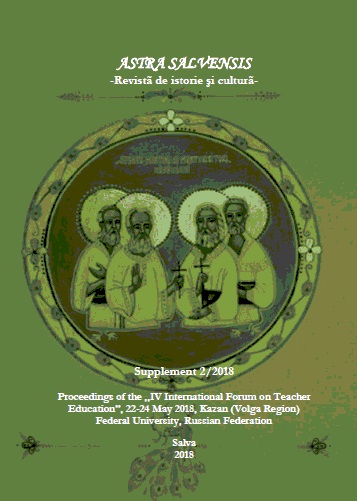MODELS OF MASTER‟S DEGREE THEORETICAL RESEARCH IN RUSSIA AND THE USA
MODELS OF MASTER‟S DEGREE THEORETICAL RESEARCH IN RUSSIA AND THE USA
Author(s): Elena V. Bystritskaya, Irina Y. Burkhanova, Svetlana Ivanova, Anastasiya V. Stafeyeva, Yuri S. ZhemchugSubject(s): Social Sciences
Published by: Asociaţiunea Transilvană pentru Literatura Română şi Cultura Poporului Român - ASTRA
Keywords: theoretical research; educational installations; research skills; educational-scientific design;
Summary/Abstract: Personal development of a subject of education capable of self-actualization and self-realization, mostly depends on the methods of reflexive self-regulation of one‘s educational research, educational-scientific research and scientific research activities. The present article will consider the existing tendencies and results of personal development of a young scientist in the course of theoretical research. The methodological framework includes comparative analysis of scientific sources describing Russian and American scientific research methodology, as well as survey methods and master‘s degree theses examination. Some distinctive qualitative features can be found in the purpose and the structure of the master‘s degree theoretical research models in Russia and the USA. Forming of a master‘s degree student‘s professional self-consciousness during theoretical research of a professional issue characterized by a personal significance, results in the appearance of some key thinking skills which include problem-based, systemic, paradox, probabilistic, reflexive, iteration, innovational, meta-subjective, subjective, dialogical, model, modal, axiological and technological types of thinking. Research organization model used in American universities allows to involve students, including master‘s degree students, in the activities aimed at resolving a scientific issue and obtaining new knowledge. The main purpose of the master‘s degree theoretical research is to ensure future specialists‘ research culture and professional self-consciousness.
Journal: Astra Salvensis - revista de istorie si cultura
- Issue Year: VI/2018
- Issue No: Supp 2
- Page Range: 115-124
- Page Count: 10
- Language: English

